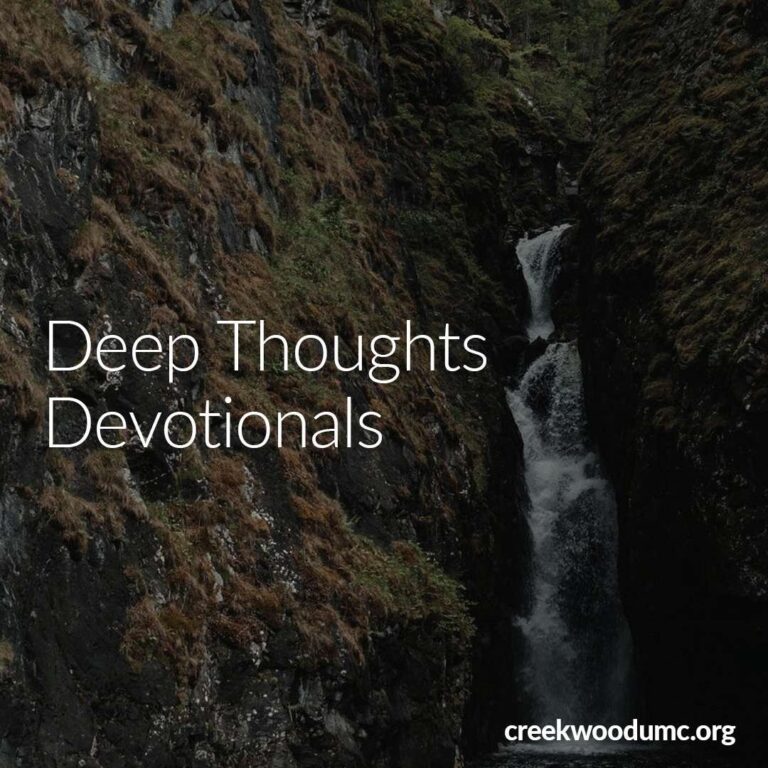Please consider writing a Google Review for us. Log into your Google Account, search for Creekwood UMC, then find the “Write A Review” button and you’re on your way.
Don’t Judge?
Again, truly I tell you, if two of you agree on earth about anything you ask, it will be done for you by my Father in heaven. For where two or three are gathering in my name, I am there among them.” – Matthew 18:19-20 NRSV
I was approached with a question after last week’s sermon on Prevenient Grace that I received permission to write about this week. The gist of the question was, “You said that it’s not our place to judge, and I agree with you on that, but what about my brother who is clearly not living a healthy lifestyle and needs correction? Am I allowed to correct him or is that judgment?”
It’s a great question. I recall from an early age those who were disenchanted with religious people shouting the phrase, “Don’t judge me,” and it, appearing more and more from TV and movie characters whose actions were being scrutinized by the script itself. What always confused me was how these real or fictional characters were blatantly destroying themselves, hurting others, or, at the very least, engaging in behavior that psychology has shown over and over again leading to a weakened sense of self-worth.
They were in need of correction but offended by judgment.
Here’s the thing, while Jesus tells us not to judge, He doesn’t tell us to stand back and watch someone destroy themselves. The small part of Matthew 18 I quoted at the top of this is generally limited to verse 20, where we misinterpret it to be about worship, a small group, or a gathering of Christian friends. While that may also be true, it’s a passage about correction and proper methods of judgment. Adding verse 19 before verse 20 ought to give us an immense sense of responsibility and power for how we, as Christ’s witnesses, can impact someone’s life.
How Should We Confront?
I’d encourage you to read Matthew 18:15-20 in totality to see that Jesus lays out a pattern of the proper way to go about correction and criticism, and in this, I think we can distinguish between judgment and constructive criticism. He starts with a modest one on one encounter, presumably because the two people have a relationship in which the corrector cares enough about the sinner to care enough to approach. However, not all of us are great at receiving criticism (correction- none of us are very good at it), so sometimes it takes more than one voice before we believe it’s a real problem. Eventually, if the problem gets ignored, or grows bigger then more people become involved and natural consequences can occur if someone refuses to stop destructive behavior.
But notice how the offender’s worth is never called into question.
Judgment is the value statement that someone is “out,” “evil,” or “less than.” The method of correction in Matthew 18 does presuppose that the church, or the individual representing the church, is coming forward with some heavenly wisdom, but it’s put forth to emphasize humility and not judgment during a correction. The individual who initiates the process isn’t backed by the church as a bully in their corner, rather, they must remain humble because the church (or God, really) is the final authority – not themselves.
What Does Scripture Say?
Also, notice the stories that precede this portion of critique in Matthew 18.
- Matthew 18:1-5– A question about greatness, to which Jesus answers “you must become like children.”
- Matthew 18:6-9– A warning against causing others to sin, especially leading children astray.
- Matthew 18:10-14– The Parable of the Lost Sheep where Jesus leaves the 99 to return the 1 lost sheep.
It’s a movement itself that emphasizes humility for those who are in need of correction AND those who might do the correcting. No one should be allowed to hurt others, but also no one can trump themselves up over another and claim to be “like a child.” To sit back and condemn would be judgment, but we see the example of a shepherd who cares so much about the one who has gone astray that he leaves all 99 of the good-natured religious folks to go get the lost 1.
Be More Perfect
There’s a shockingly high amount of scriptures about judgment for a book that emphasizes a Savior who tells us not to do it, but most of them follow this same pattern of wisdom. We are called to humble correction, not condemnation. We are called to love our enemies and help them be a part of something more perfect, not cast them out and call them names. Correction is meant to be patient, individual, and humble, and I hope that as Christ’s body, we can model the same humility as the Savior who showed us the ultimate form of mercy when he very easily could have done the opposite.
Peace,
David Lessner
PS – Don’t forget to help with our Valentine’s Day edition of “Share the Love” after worship on Sunday. Pick up a delivery to one of our more home-bound members and take some time to visit and let them know they are not forgotten.
Financially Support our Ministries
Check Out The Narrative Budget






